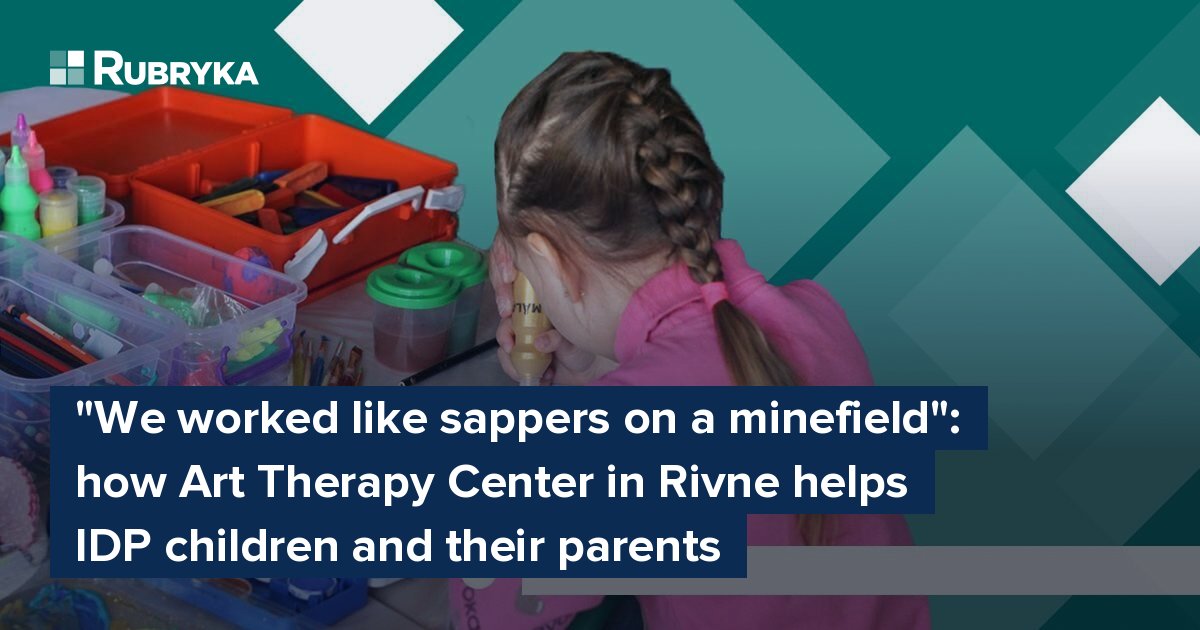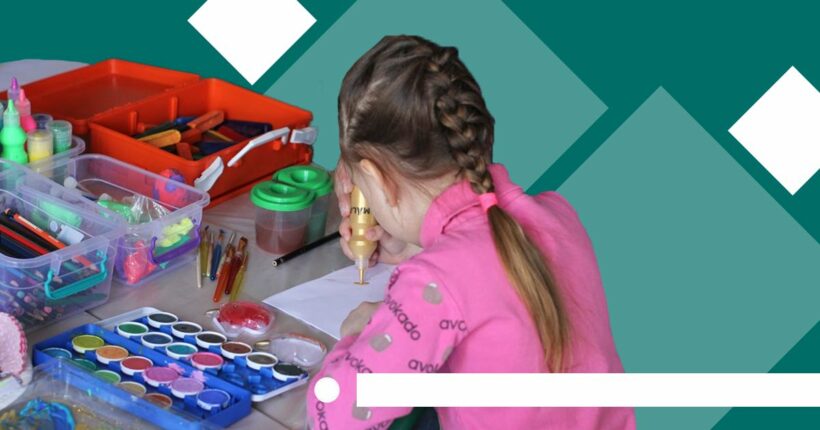
What is the problem?
The impact of the war on children and parents
The war has been a terrible ordeal that affected all Ukrainians. Today, no one is protected from the consequences of russia's attack on Ukraine. War has brought loss, PTSD, and fear while robbing millions of people of wealth, resources, and strength. Children suffer even more—the stress caused by war and its consequences negatively impact their mental health and development.
What is the solution?
Creativity vs. Trauma
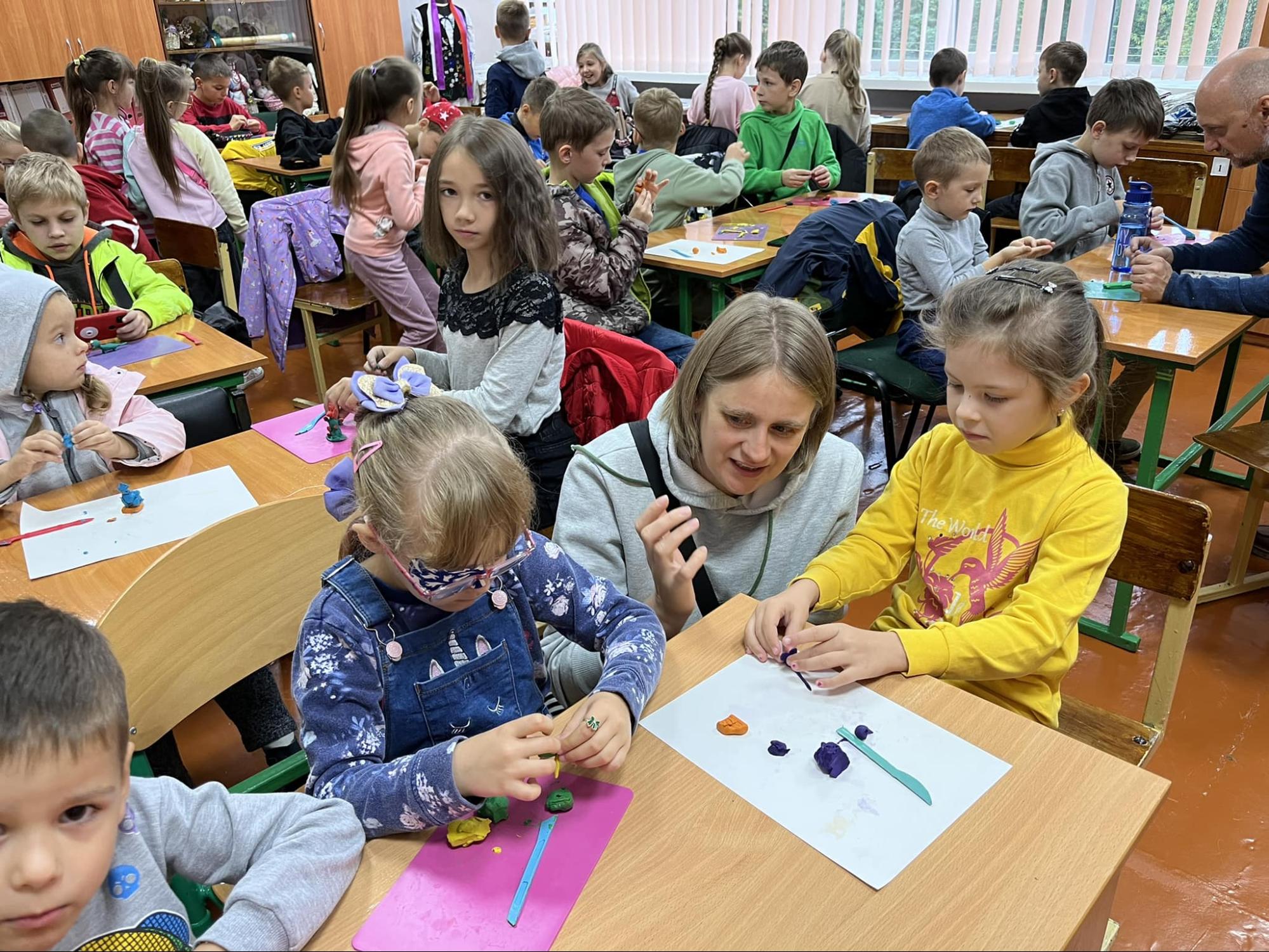
Psychologists Ksenia Tymeniuk and Viktoria Nazarevych in Rivne faced this when they decided to help internally displaced persons (IDPs) overcome war trauma. The primary tool they chose was art therapy—one of the modern methods of supporting mental health. Art can be a powerful therapy because you can express traumatic experiences, reframe them, and release emotional tension through creativity. Local psychologists, teachers, and artists united around this idea—that's how they created the ART Center for children and adults who suffered from the war in Ukraine. Here they help fight fears, stabilize the mental state and restore faith in the future.
The project's initiators decided they would help both children and their parents: "Considering that every child senses the internal state of their mother, we tried to have the child work in the classes with the mother or guardian. Here we needed to be extremely attentive, delicate, and keep ourselves together and not burst into tears."
"A kid sitting in pajamas with a phone in his hands and sobbing"
Work on the ART Center began as a volunteer group that operated at Lyceum No. 18 from the beginning of the full-scale war. The activists helped IDPs with essentials, hygiene products, and other things. All those forced to leave their homes and flee from the russian invaders without clothes and documents and who came to Rivne went here.
"Children were always sitting in classrooms and corridors while their parents were looking for something, filling out documents. It was excruciating to watch a child sitting in just pajamas, with a phone in his hands, and sobbing," recalls Ksenia Tymeniuk, who was volunteering at the lyceum at the time.
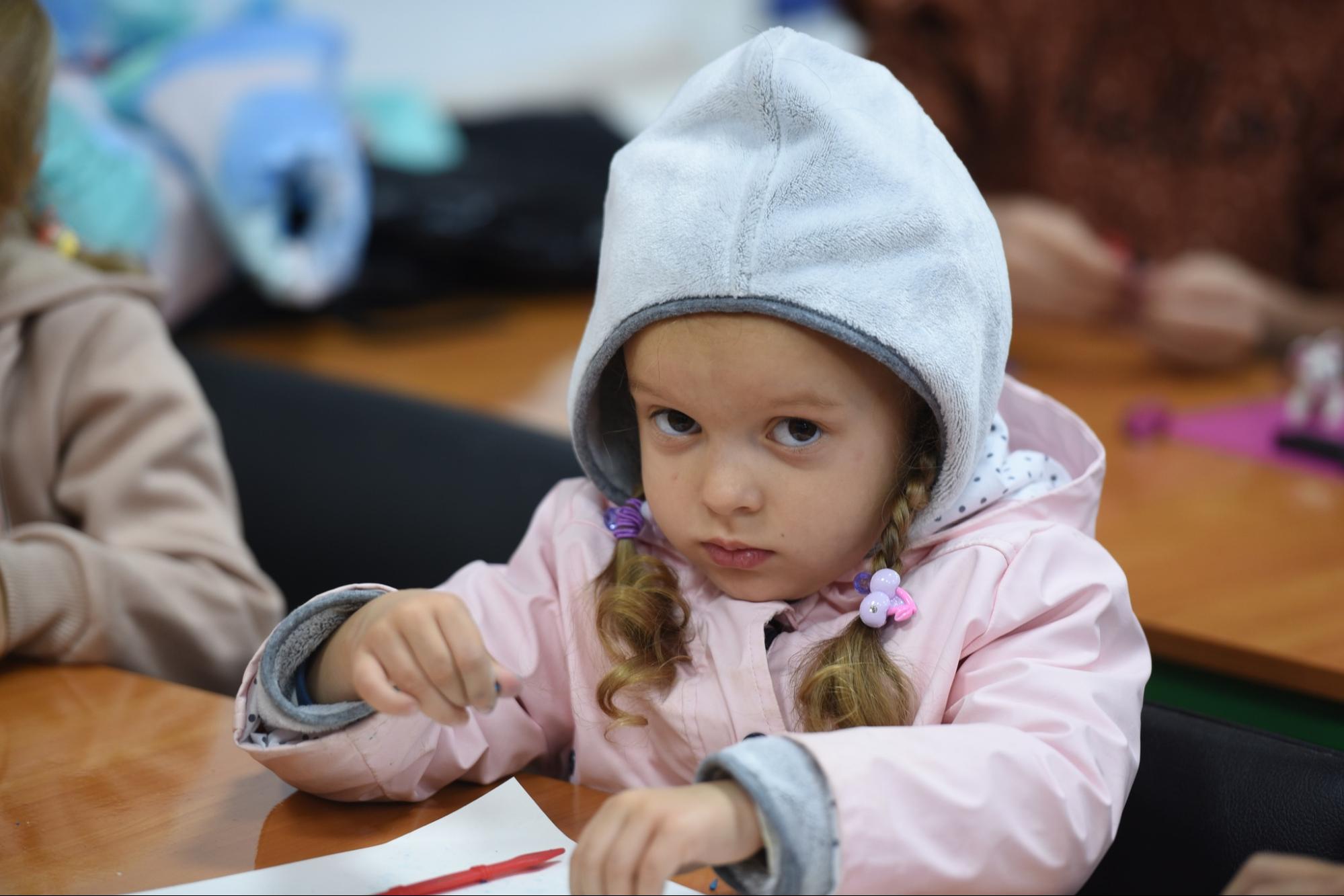
At that time, the volunteers came up with the idea to organize an Art Therapy Center right there, in the lyceum, where psychologists, using art therapy methods, would work with children and parents who fled to their city from the war. Psychologists understood that people who experienced the horrors of war needed an extremely delicate approach: "We worked like sappers on a minefield."
Friends and acquaintances of the founders joined the project development, and later, complete strangers became part of the initiative. Participants were not only from Ukraine. "In the summer, the entire community in the city of Kutno (Poland) collected help for our Center. Even the nuns used their money to buy pencils and bring them to the gathering. All the help and cooperation is real magic!" Ksenia Tymaniuk says.
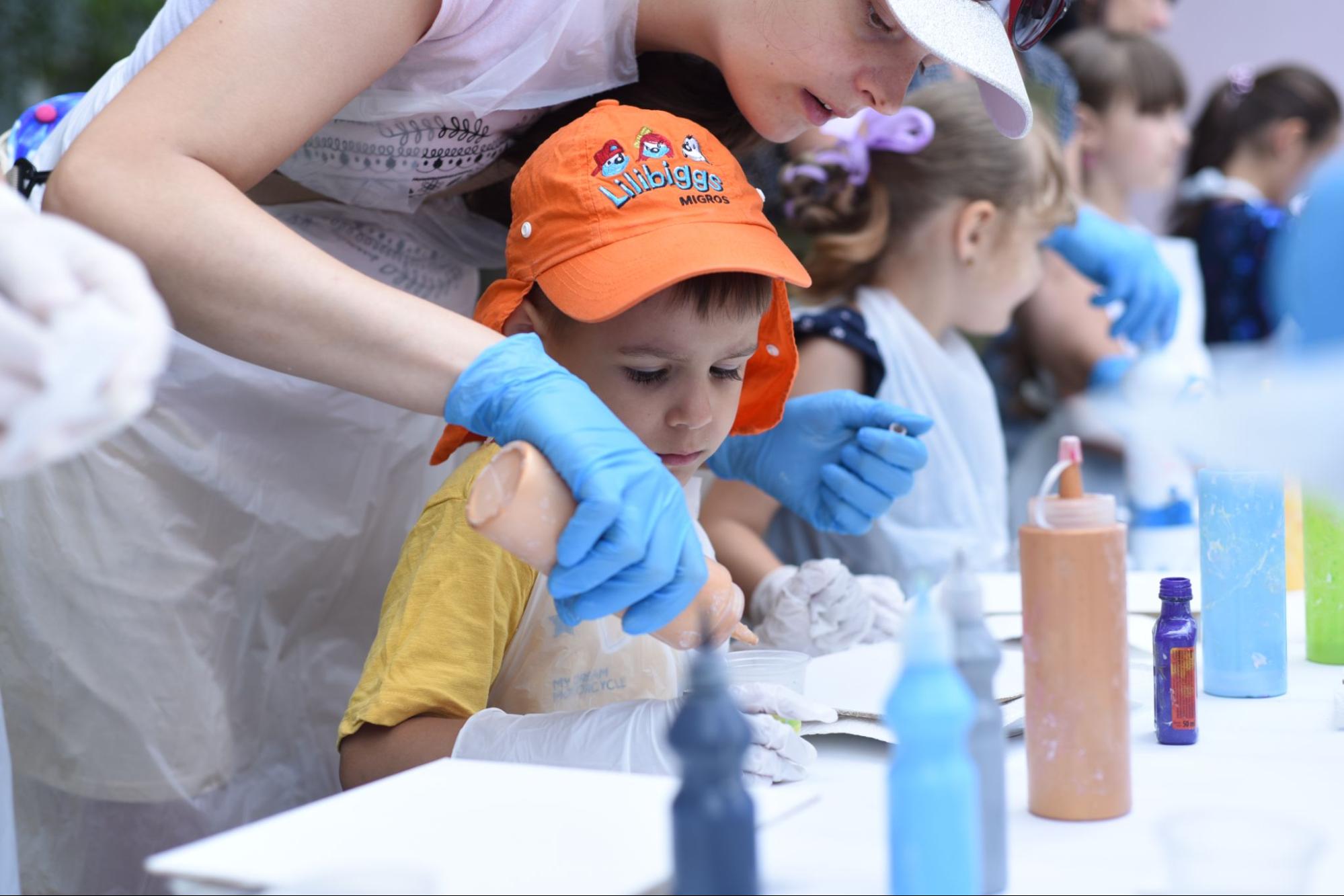
In March, Viktoria Nazarevych organized training and supervision for the Center's volunteers with British supervisors and Israeli crisis psychologists as part of the volunteer movement of the Institute of Integrative Art Therapy.
Today, the ART Center and counseling function separately. The ART Center team consists of volunteer psychologists, teachers, and masters of fine and applied and decorative arts.
How does it work?
From plasticine to acting
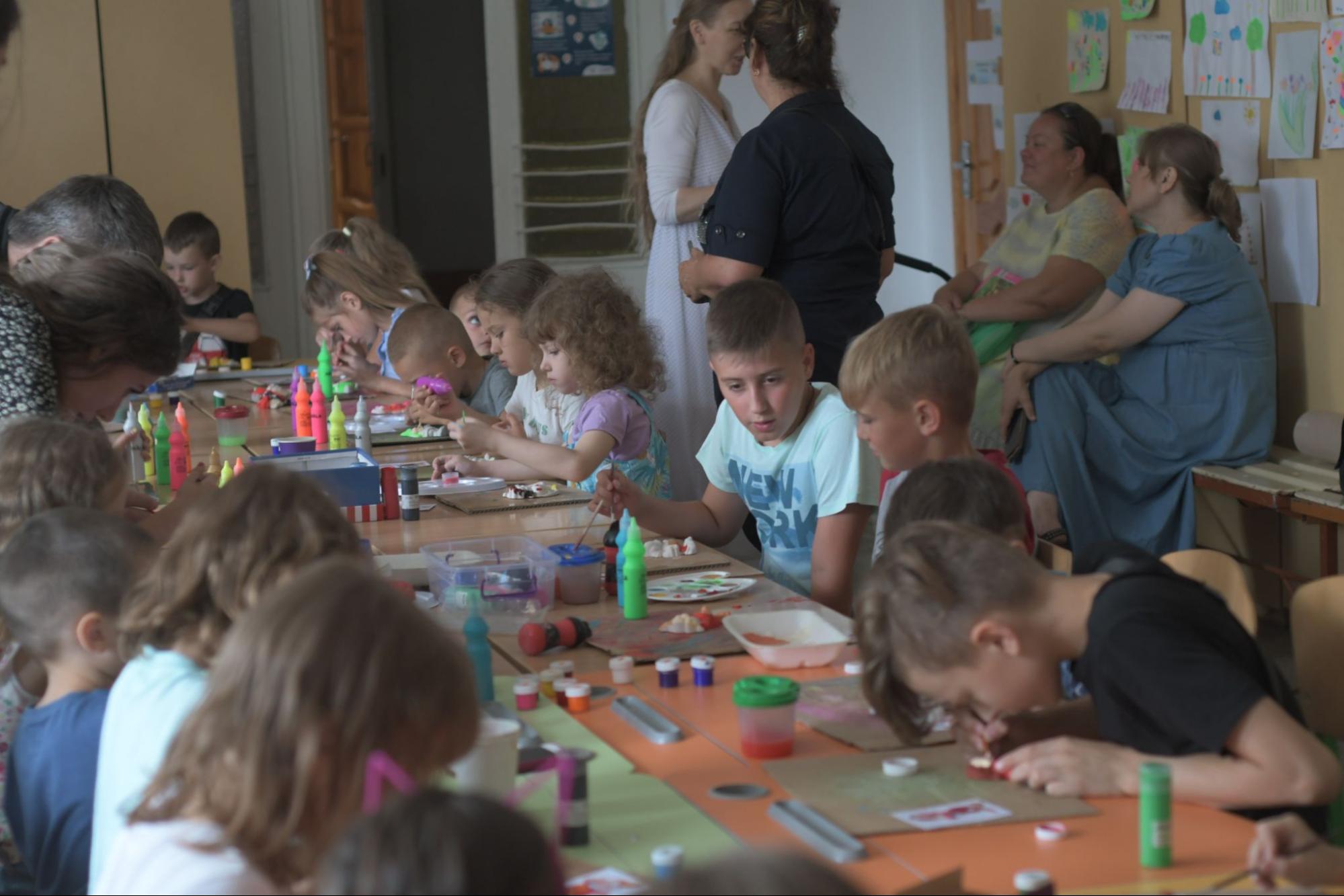
The ART Center in Rivne strives to help internally displaced families, children of the military, and locals first to survive complex events, adapt to the new reality, and develop their potential. After all, the creative activity quickly and safely helps to calm down, rethink experienced events, structure emotions, and build a strategy for the future. Psychologists are sure that creativity contributes to a person's healing and self-regulation. But how does it happen?
The ART Center is open every Saturday from 10:00 a.m. to 1:00 p.m. Several locations have been created based on Lyceum No. 18, where the volunteers work with children and adults in parallel. Usually, these are group classes for 10–25 people, but if the group turns out to be larger, it is combined into subgroups. The founders say this format provides group dynamics, communication, and mutual support. Work with stress is carried out in several stages.
"We offer only resource-based work methods to accumulate internal resources and promote self-regulation. And later, when a person, to put it simply, 'has inner strength,' we work on problematic issues. If it's not done, we'll observe only re-stress—a desperate, unbalanced person relives a stressful situation, and their negative psycho-emotional state only worsens," Ksenia Tymeniuk explains. If necessary, people are referred to neurologists or psychiatrists.
The Center's volunteers say that children and adults who systematically attend classes noticeably change at their own pace. Their creative works develop cheerful colors, the topics of war change to everyday concerns, they begin to communicate with others and adapt to a new city, and adults look for work and set new goals.
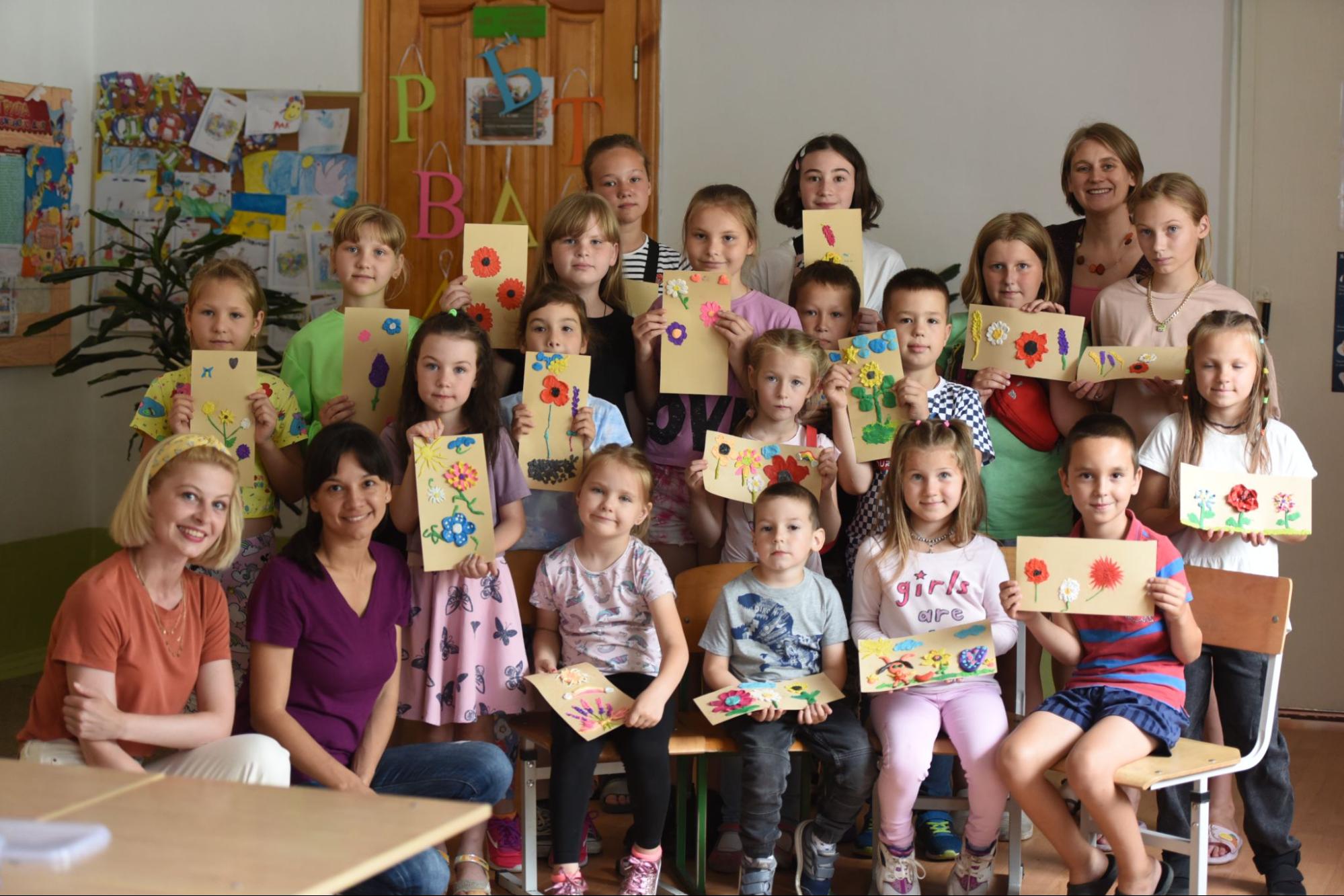
The Center doesn't limit itself to just drawing. The ART Center believes that various types of art, including acting, can help the psyche cope with the consequences of war.
What do they do in class?
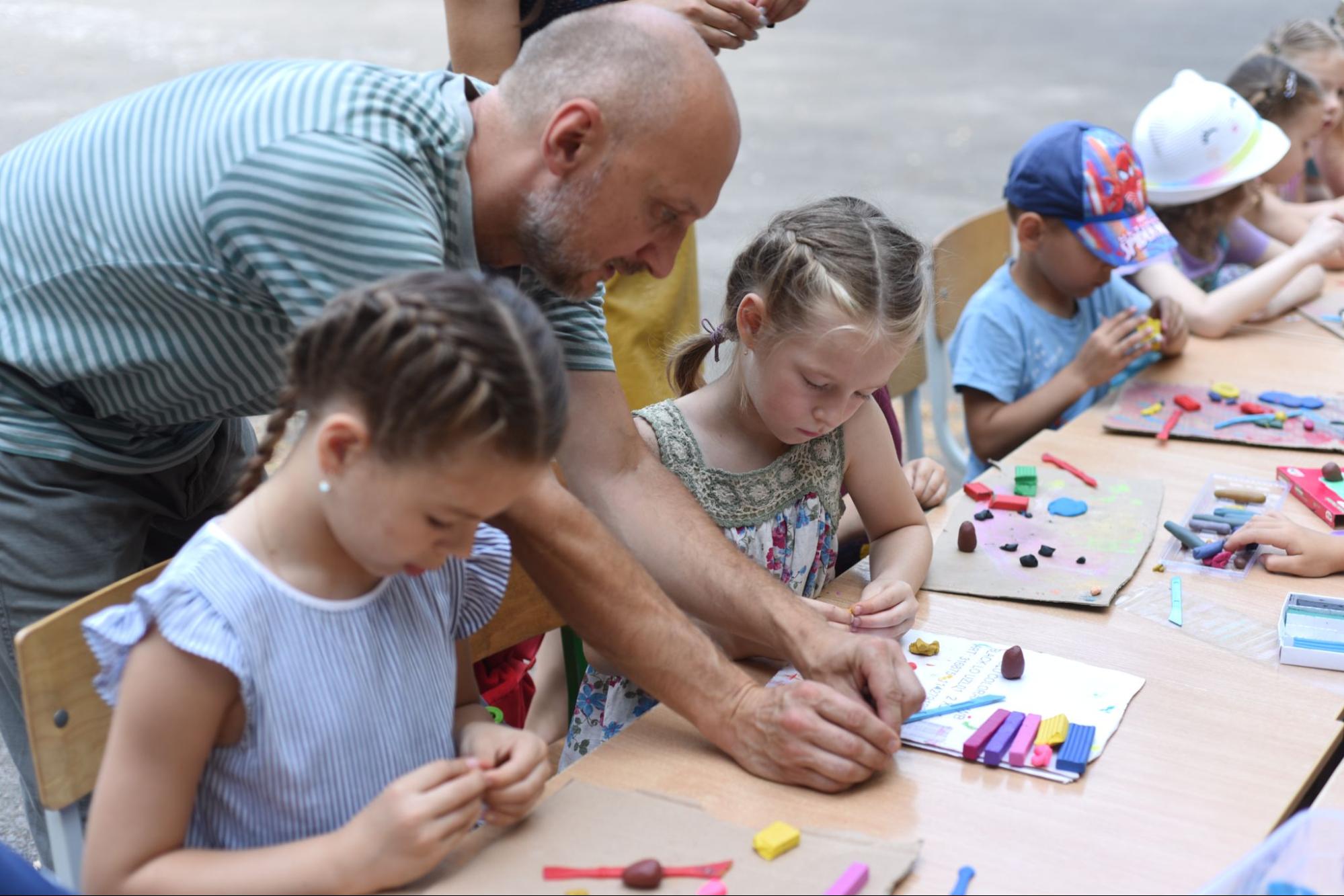
- The hand sculpting expert, Oleksa (Oleksii Mykhailov), teaches children to create installations from plasticine. Hand sculpting perfectly develops children's fine motor skills, positively affects creative thinking, develops perception and spatial orientation, and reduces stress, anxiety, and aggression. And with Diana Liushyna, a craftswoman who was forcibly displaced from Mariupol, children plunge into the world of plasticinography, where they learn to create unique plasticine paintings.
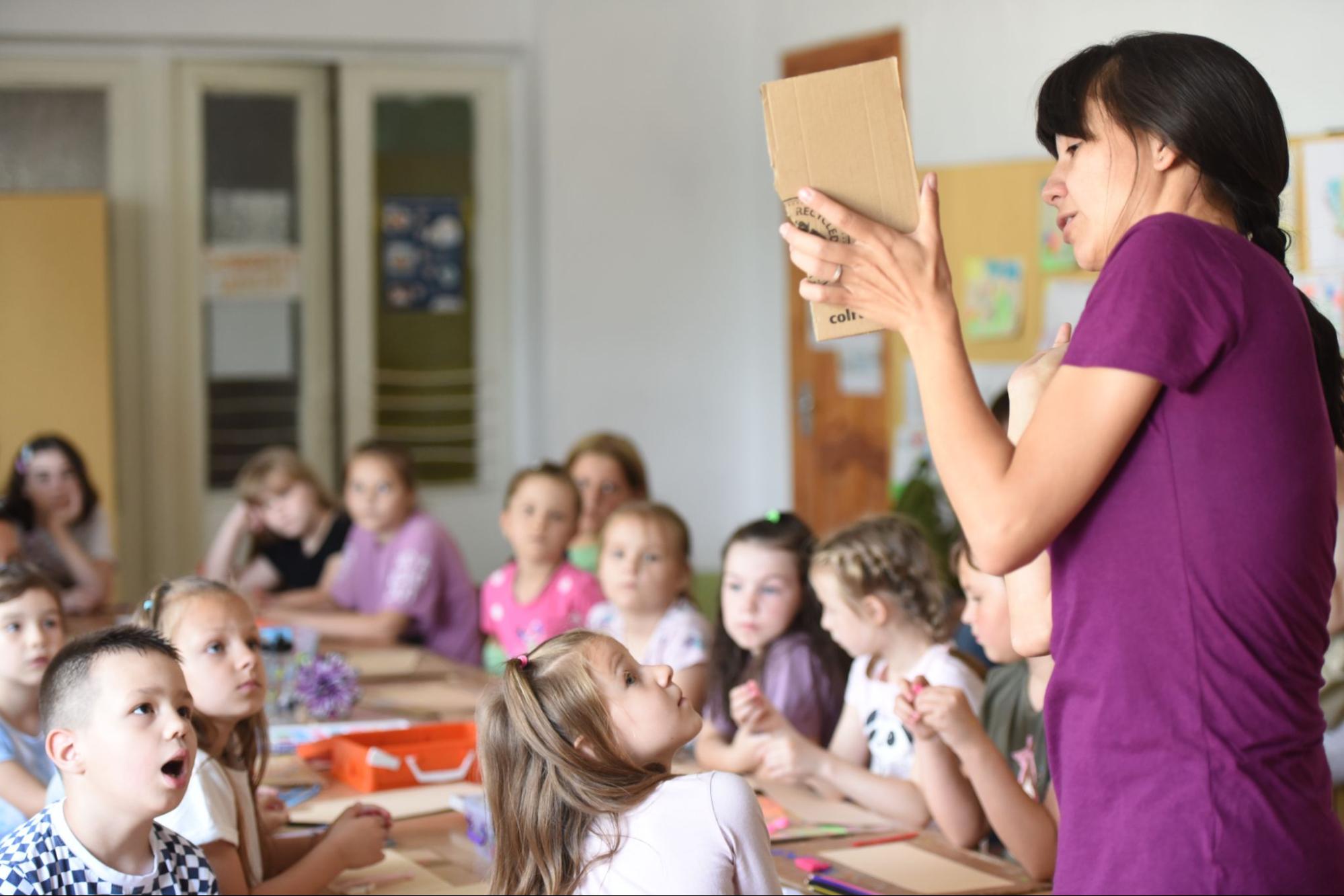
- Alla Andriitso-Ruzaieva teaches how to paint three-dimensional shapes, how to work with colors correctly, and how to combine colors. During the master class, she always initiates discussions on various philosophical topics that help to reveal people's personalities and overcome the difficult circumstances of the war.
- With Volodymyr Rafalskyi and Oksana Huminska, the Center visitors improve their physical and choreographic training and learn the basics of acting.
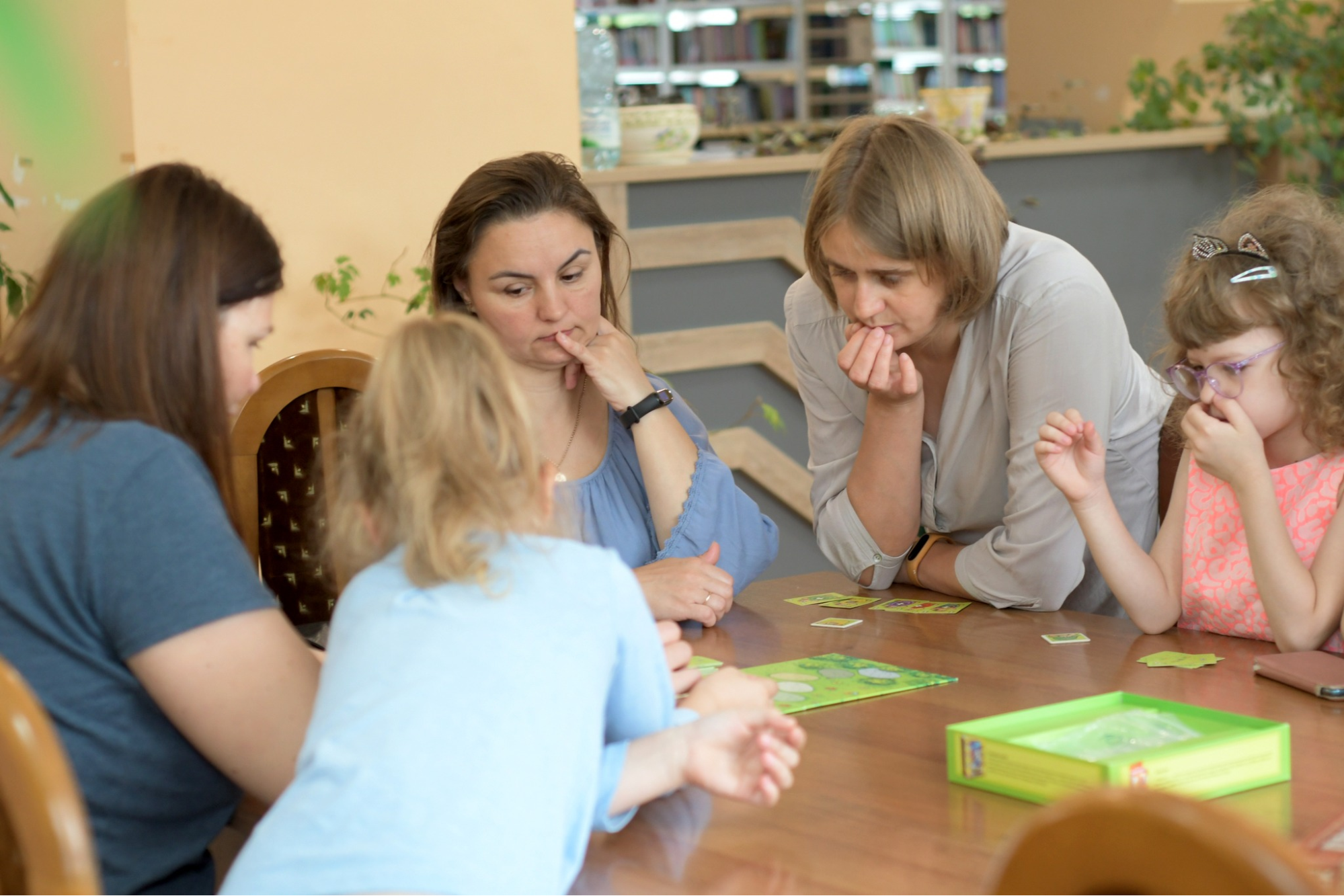
- The ART Center also has a children's game room run by Iryna Tanichkina, an expert in board games. Here, children develop their thinking and memory, learn to win and lose with dignity, and develop leadership and teamwork skills.
- Here you can learn how to paint eco-totes. It is a creative process that gives an opportunity not only to express oneself but also to create a single unique thing.
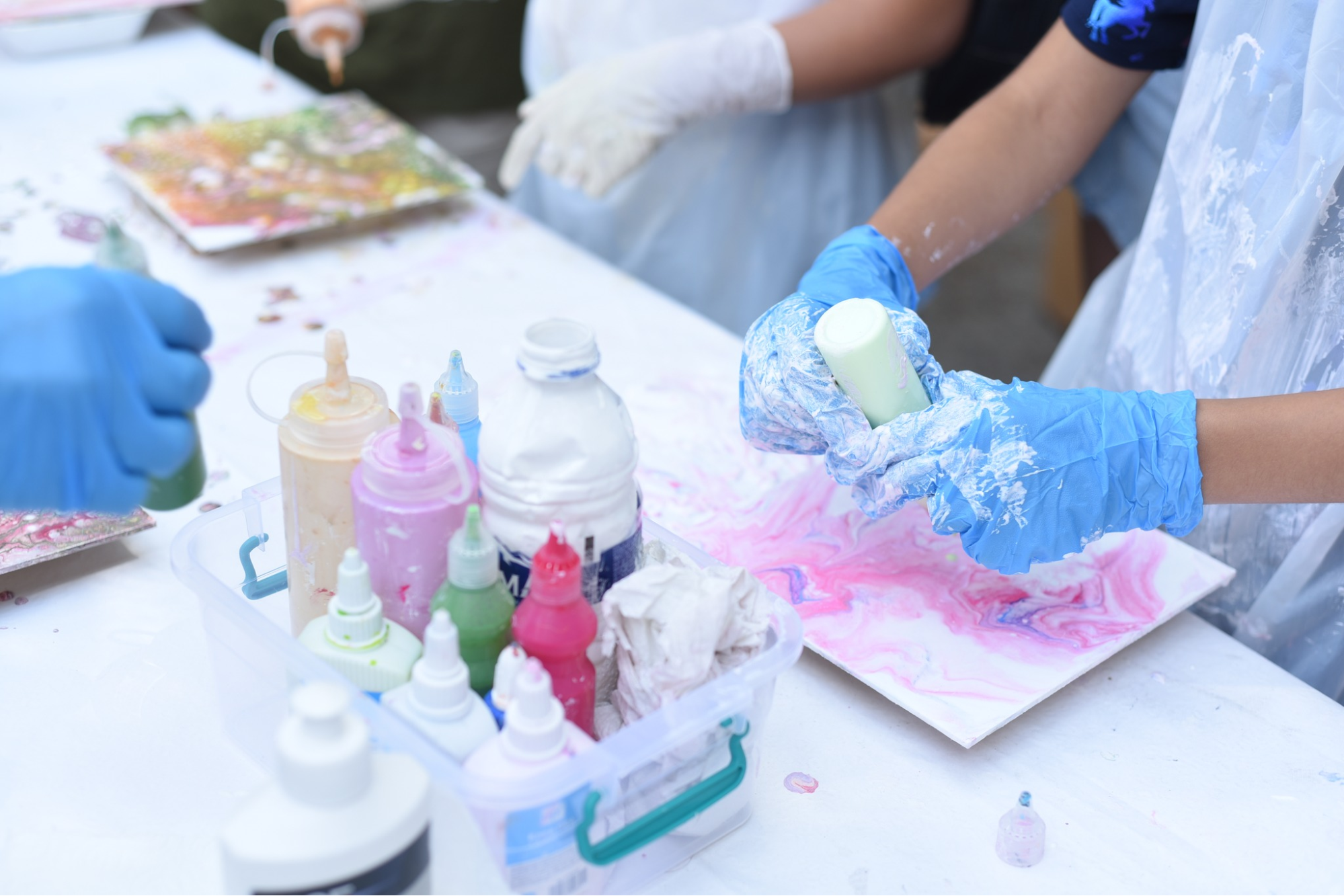
- With Rivne master Natalia Zhukovska, adults master the fluid art technique of painting with acrylic paints, which encourages self-regulation and adaptability to constantly changing life conditions. This art therapy technique is actively used in work with IDPs in Switzerland, Austria, and the Czech Republic.
- The volunteers have actively used music therapy, photography, motivational films, books, etc., in classes. Psychologists monitor the dynamics and give advice.
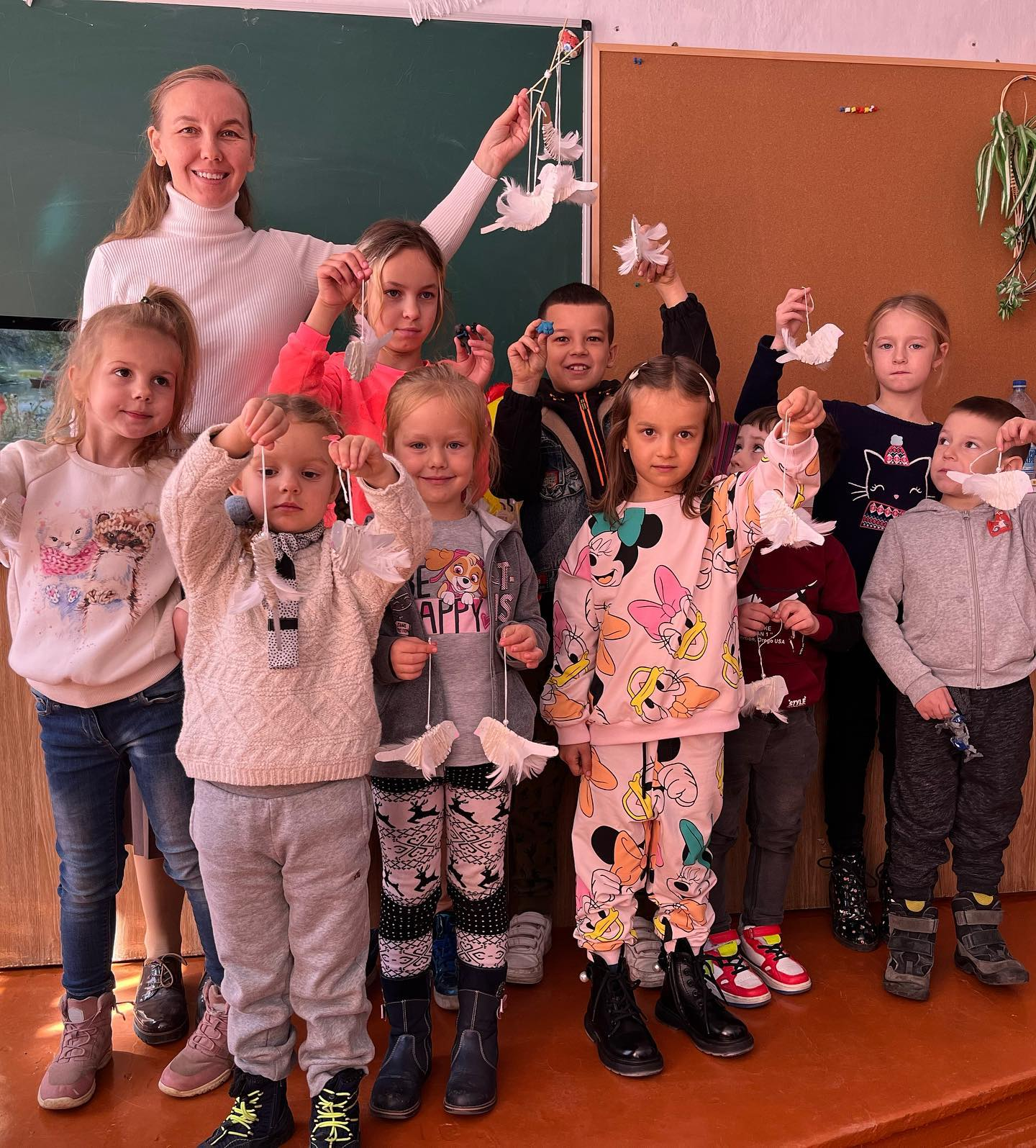
The project team works on a volunteer basis. Each participant gives their best in their classes—the masters individually pour plaster forms for classes, dilute paints for fluid art, and sculpt samples. They could devote this time to their families, themselves, or sleep. But they consciously choose to help those who need help—children and adults affected by the war.
Does it really work?
In early spring, a mother with a five-year-old boy visited the ART Center. The family came to Rivne from Mykolaiv. They stayed in the basement for about two weeks hiding from russia's rocket attacks on the city and region, and when they were leaving, they also came under terrible shelling. Ksenia Tymeniuk says that the mother and her son systematically studied at the ART Center and worked with art psychologists for a specific time. Within a few months, the mother's fear and anxiety decreased, and she enrolled in courses and learned a new profession. Today, the young woman has already opened her art-related business and is taking the first steps in entrepreneurship. The boy made new friends in the city and attended classes in the sports section. Psychologists stress a decrease in his level of aggression and fear.
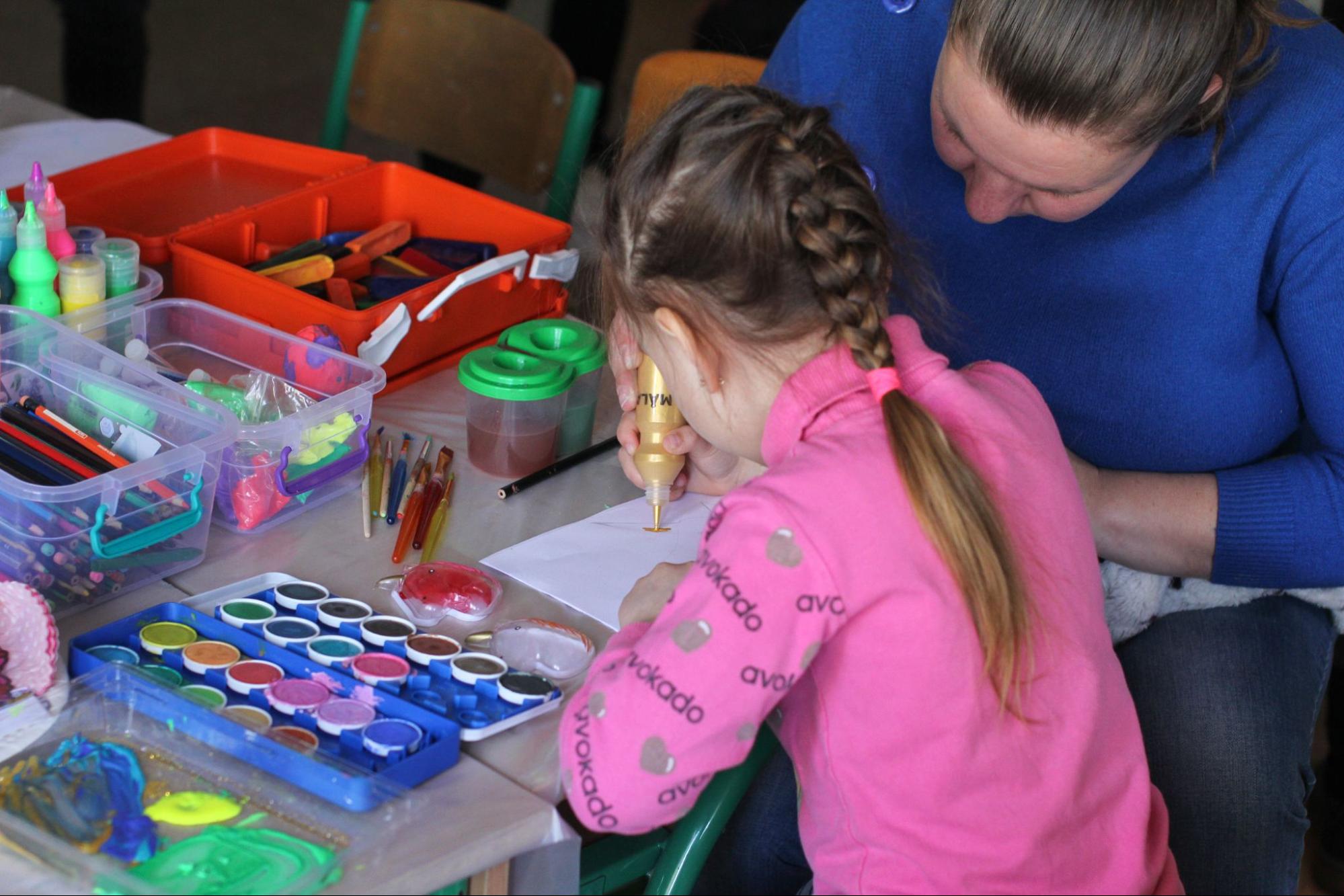
The ART Center adheres to several main rules: to be honest and open to new things, respect the boundaries of others, and love what you do.
Ksenia Tymeniuk says that the most important thing is that children and adults who visit the ART Center feel it: "There's always a light, open atmosphere, mutual help, and support, which distinguishes us from other projects. Children and adults wait for Saturday to come and chat with their peers, learn to do something new, and shift attention from news and gadgets. It is already becoming a club with group dynamics, support, leisure, and mentoring."
Since the project's creation, the Center has been visited by more than 1,000 people, some of whom attend classes regularly.
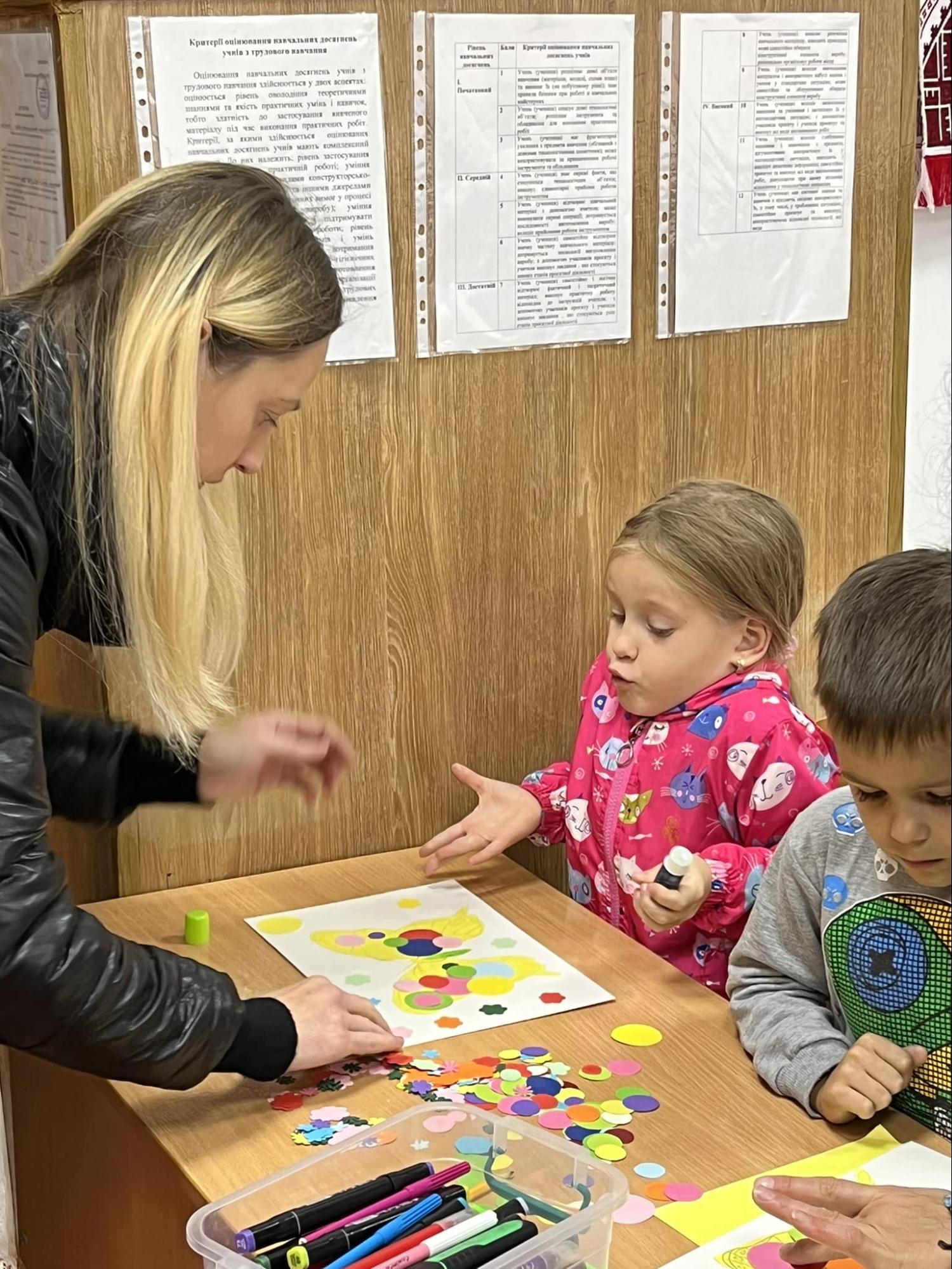
The ART Center founders, Ksenia and Viktoria, say that their work's main feature is not just classical art therapy. Art therapy techniques are not only used here to help people find internal resources to overcome crises and adapt to a new life. At the Center, people are also taught new creative directions and given the opportunity to try their hand at various fine art techniques, as well as choreography and music. It's not only about the therapeutic effect of art therapy as such. It's about communication therapy, group work, a new community, and new habits in a new place.
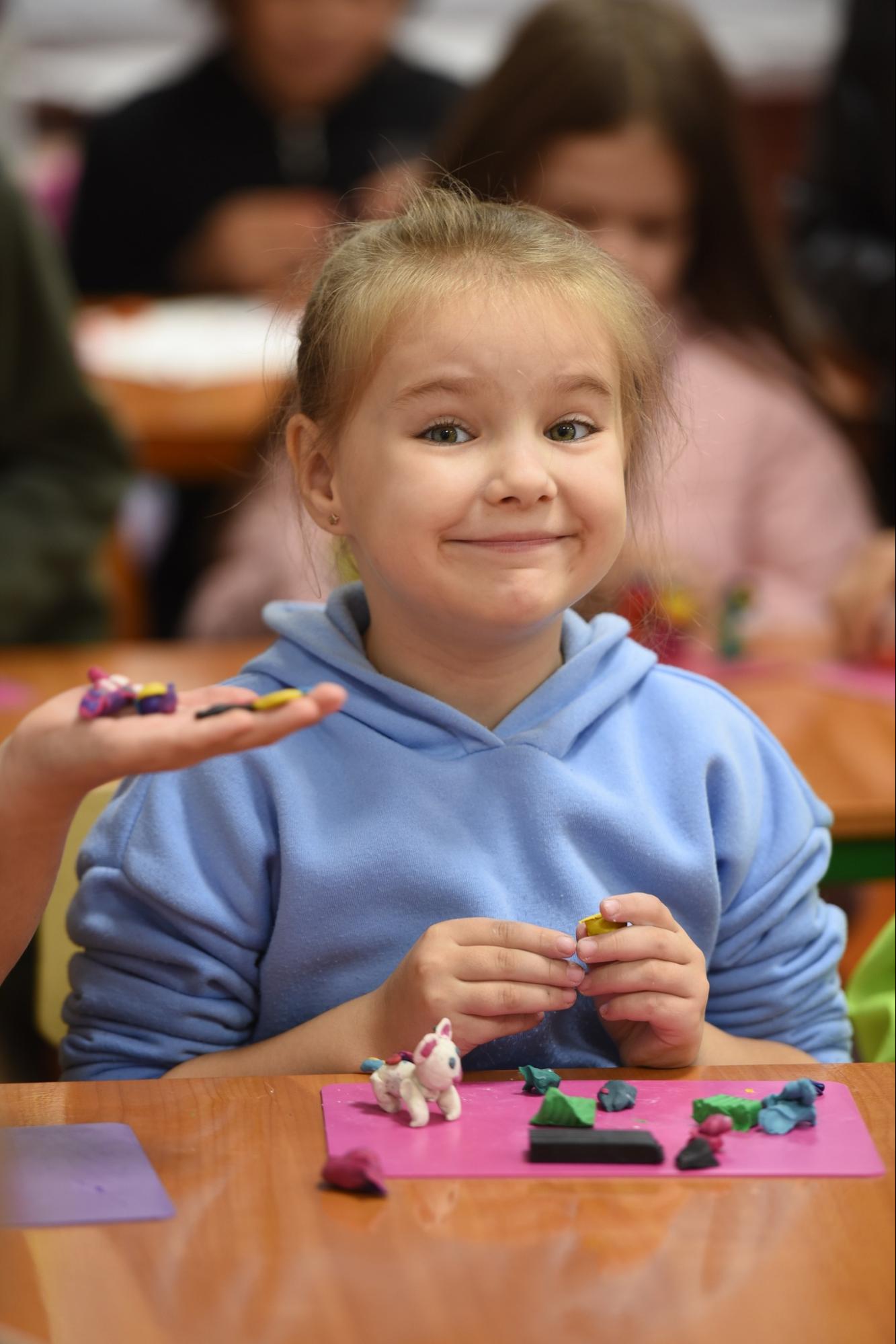
How to help the ART Center?
"We understand it is a socially important project that we cannot shut down. After all, not all families have the opportunity to pay for their children's classes, and they desperately need it. It is confirmed by the number of children in classes and reviews on social media," Ksenia Tymeniuk notes. Like every team member, it is crucial for her to continue the Center's work: "I see that the ART Center makes people happy, helps them overcome crisis moments in life, and I am happy about that."
Now the project has big plans for the future. ART Center employees are looking for grant support and creating a platform for donations—they say, without this, it is impossible to develop the ART Center in Rivne further. After all, it's challenging to support the work of the project at one's own expense.
In addition, the project team is constantly searching for and engaging masters and specialists in new, diverse areas.
If you want to support the ART Center financially or directly participate in its work, contact the founders at the link or Ksenia Tymeniuk by phone: +38 067 476 09 29.
The ART Center's address: Rivne, Karpinskoho Street, 15 A (Lyceum No. 18), every Saturday from 10:00–13:00.
Even more helpful solutions!
Where can you get free psychological help?
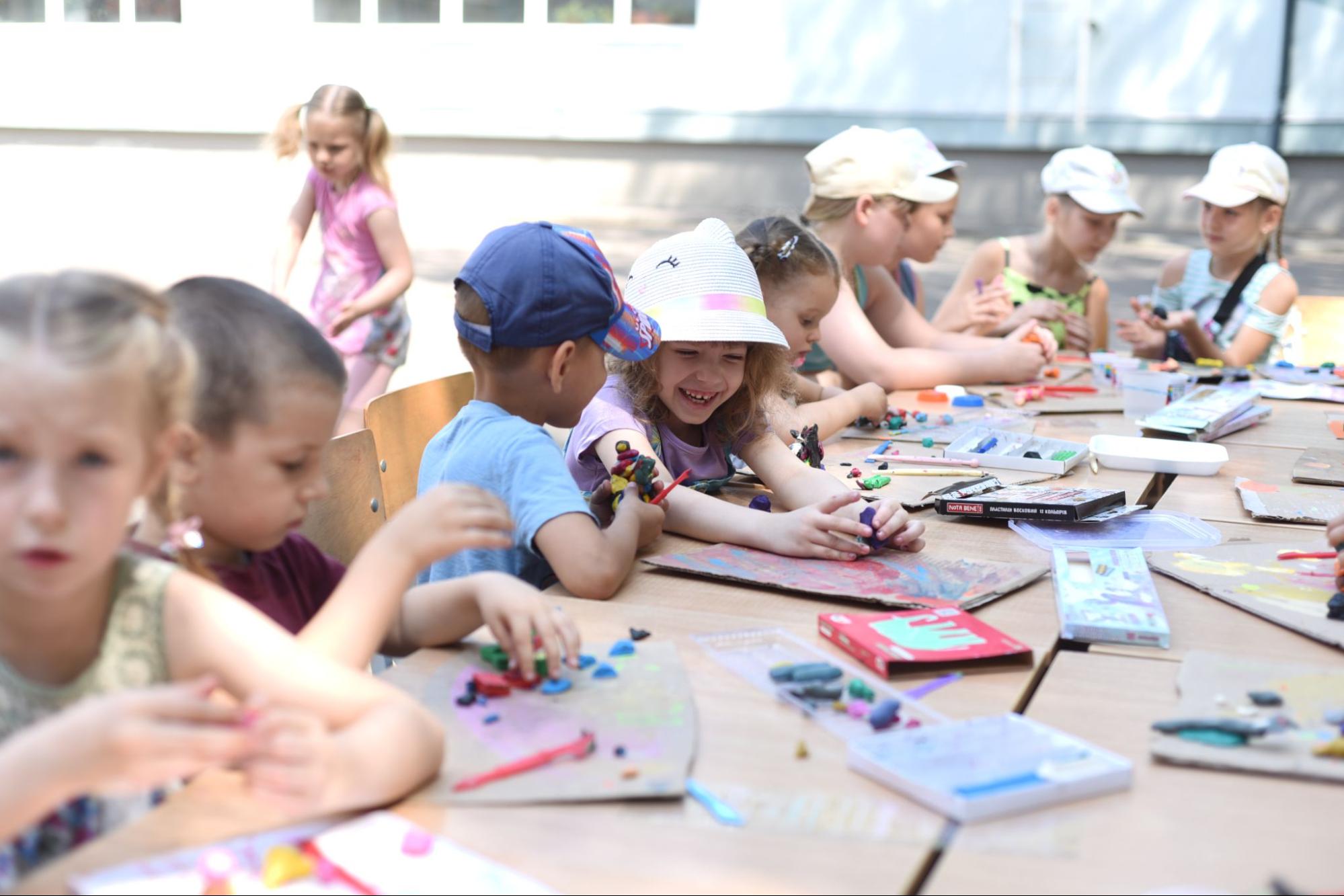
According to the population's psychological state study by Ukraine's Ministry of Health, more than 90% of surveyed Ukrainians had shown at least one of the symptoms of PTSD, and 57% of citizens are at risk of developing post-traumatic stress disorder.
Seeking help is not a sign of weakness but self-care. We have collected resources for you where you can get free psychological help.
- Ukraine has a free psychological help hotline. Anyone from Ukraine can call the number 0-800-100-102 (calls are free) every day from 10:00 to 20:00. The line administrator will accept the call, determine the format of work convenient for you (audio or video), and direct you to a free psychologist on the line. Citizens of Ukraine who evacuated to other countries can also use this opportunity. Calls from all mobile providers in the respective countries are free.
- Czech Republic +420 800 012 058
- Poland +48 800 088 141
- France +33 805 080 466
- Portugal +351 800 780 756
- Sweden +46 20 160 46 46
- Ireland +353 1800 817 519
- Italy +39 800 939 092
- Austria +43 800 017 967
- The UK +44 808 164 2432
- Ukraine has launched a hotline to help overcome war-related fears. The line will also advise people preparing for the return of loved ones from the front and who don't know how to behave. The line 0 800 332 029 is free and works around the clock. All conversations are private.
- The Kolo Center provides crisis psychological counseling to persons in need of support amid the challenges of war. Priority is given to forcibly displaced persons and relatives of defenders. Appointment by phone: +380 98 559 65 21 (open from Monday to Friday from 10:00 a.m. to 5:00 p.m.).
- The international humanitarian organization People in Need provides free round-the-clock psychological consultations. Phone: 0 800 210 160 (24/7).
- The free online platform for psychological consultations, Tell Me, uses cognitive-behavioral therapy. You can leave an application for assistance on the website or with the help of the psychological first aid bot Friend. The latter was created based on modern, scientifically proven research.
- The UkrYednist initiative is a society of qualified psychologists and psychotherapists who have united to provide free psychological assistance to Ukrainians during wartime. The team comprises more than 50 proven qualified volunteer specialists in mental health.
- The TreatField team, together with experts and volunteers, founded a psychological support project. Platform How Are You? will find a contact of a freelance psychologist for you.
- Charitable organization UA Mental Help, which has been working since the beginning of russia's full-scale invasion of Ukraine, has launched its psychological help platform. On the website, everyone who needs support can consult a specialist according to their request free of charge.
- The crisis center for medical and psychological aid provides psychological assistance to displaced persons, service members of the Armed Forces of Ukraine, and soldiers who were wounded or suffered psychological trauma. You can call the following number: 0800 501 212.
- Trust Line is a 24-hour helpline staffed by psychiatrists and psychotherapists. 044 456 17 02 and 044 456 17 25.
- Lifeline Ukraine is an all-Ukrainian hotline created primarily to provide crisis psychological assistance to veterans, their family members, and, later, all Ukraine residents. The line works around the clock. You can write or call the number: 7333.
- Residents of Ukraine can also contact the free consultation hotlines. In particular:
- the government hotline 15-45;
- the organization Human In Trouble, 0-800-210-160 (24/7),
- the Kyiv City Center for Psychological and Psychiatric Assistance in the event of a mental crisis, (044) 456-17-02, (044) 456-17-25 (around the clock);
- the emotional support line of the International Organization for Migration, 0-800-211-444 (from 10:00 a.m. to 8:00 p.m. daily), will be helpful for migrants.
Newsletter
Digest of the most interesting news: just about the main thing



